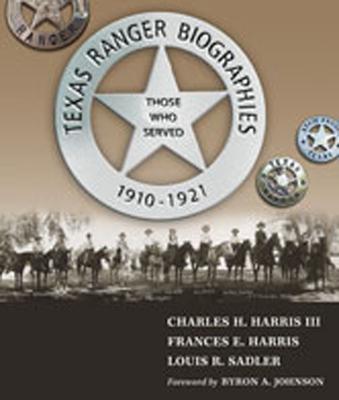The Mexican Revolution was launched from Texas on November 20, 1910, and throughout the following decade the state would remain a hotbed of revolutionary activity and intrigue. It was in Texas that Mexican factions organized juntas, recruited cannon fodder, raised money, smuggled arms and ammunition, marketed loot and, when defeated, fled to regroup. These years also served as a turning point in the history of the Texas Rangers. By 1910 their traditional role of fighting Indians, Mexicans, and outlaws was coming to an end and there was growing support for abolishing the institution. With the advent of the Mexican Revolution and the subsequent border turmoil, the Rangers were once again looked to for protection.
Histories of the Texas Rangers tend to focus on only a handful of men who acquired formidable--and usually exaggerated--reputations while the majority of the organization's members remain faceless lawmen. Using material collected over three decades of archival research, Charles and Frances Harris and Louis Sadler have compiled a reference book that presents the biographies of all 1,782 Rangers who served along the Texas-Mexico border during the era of the Mexican Revolution, not just those who achieved notoriety. In so doing, they reveal the diversity and scale of the organization and the importance of each man's role in helping shape one of the enduring legacies of the U.S.-Mexican border.
